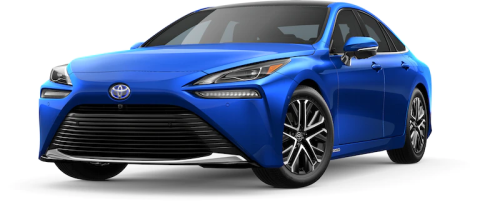Toyota continues to cling to its old strategy of vehicle electrification
Japanese multinational automotive manufacturer Toyota Motor Corporation is all set to welcome its new CEO, but it seems to remain clinging to its old strategy of vehicle electrification.
Koji Sato will officially replace Akio Toyoda as the Japanese automobile giant’s new CEO in April 2023. Initially, it was believed that the appointment of the new top executive will bring a change in the vehicle electrification strategy of the company, which continues to lag far behind other major manufacturers in the field of EVs. However, Sato’s recent statement that he believes that hydrogen is the way forward when it comes to cut the company’s carbon footprint suggests that the company is still not ready to give top priority to battery-electric vehicles (BEVs).
It is quite surprising to learn about Sato’s decision of relying on hydrogen instead of pure-electricity as virtually every other automobile manufacturer on the planet is accelerating the pace of its shift from internal combustion engines (ICEs) to electric powertrains to support the world’s efforts to cut carbon emissions that are being blamed for the problems of global warming and climate change.
Speaking on the topic, Sato outlined his aims that he wanted to achieve to secure the future of the automaker. He stressed on the importance of exploring non-BEV solutions. However, at the same time, he declared that the company has no plans to discontinue BEVs.
Speaking his mind, Sato said, “We want to ensure that hydrogen stays a viable option. We need a production and transport supply chain. Unless we see evolution there, we cannot expect a volume increase in the energy's use. We are making full-fledged efforts on everything. It is important to remain flexible in order to tailor products and energies to different carbon neutral needs in different markets.”
The new chief’s aforementioned statement suggest that he is not ready to make the company quickly shift from ICEs to electric powertrains, but believes that BEVs will also play a crucial role in the company’s future alongside hybrids and hydrogen-powered vehicles.
Toyota's lone hydrogen-powered passenger vehicle is the Mirai, which has been a mixed success thus far. In the U.S. market, the Mirai has been made available only in California as no other state has the required fueling infrastructure. The second-generation Mirai, which now starts at $50,595, offers a decent range of up to 402 miles. Still, the manufacturer could only 2,094 units of the vehicle in 2022.
